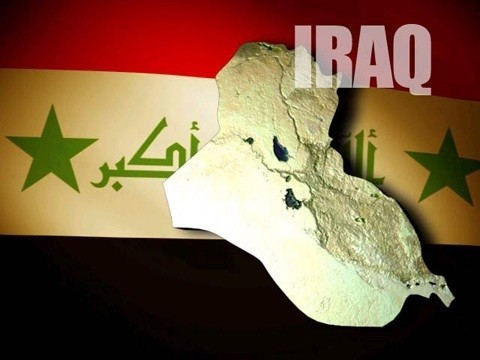BAGHDAD (AP) -- The number of Iraqis slain "execution-style" surged last month, the U.N. said Sunday, raising fears of a return of the death squads that killed thousands during the darkest days of sectarian violence that followed the U.S.-led invasion.
The increase in targeted killings comes even though the U.N. reported that the overall death toll for November dropped to 659, compared with 979 in October. More than 8,000 people have been killed since the start of the year.
In an example of other dangers facing Iraqis, three bombs tore through the funeral procession of the son of an anti-al-Qaida Sunni tribal chief northeast of Baghdad, the deadliest in a wave of attacks that killed 17 people Sunday, Iraqi officials said.
"It seems that history is always repeating itself in Iraq," said Qassim Haider, a Shiite owner of a menswear shop in eastern Baghdad. He said he has stopped accepting invitations to visit friends in mainly Sunni neighborhoods due to fears of violence.
Widespread chaos nearly tore the country apart following the 2003 U.S.-led invasion that ousted Saddam Hussein. The violence ebbed in 2008 after a series of U.S.-Iraqi military offensives, a Shiite militia cease-fire and a Sunni revolt against al-Qaida in Iraq, but that trend was reversed after a deadly April 23 crackdown by security forces on a northern Sunni protest camp.
Iraqis have grown used to random explosions, but the recent discoveries of bullet-riddled bodies have many worried about a long-feared resumption of all-out warfare between Shiite and Sunni factions.
Mazin Sabeeh, a Sunni government employee from northern Baghdad, said he has started avoiding Shiite neighborhoods to avoid being captured and killed by militiamen.
"Apparently, some people from the other sect are still determined to take revenge upon Sunnis," he said. "With the current security vacuum and deterioration, they think it is the time to settle old scores."
The November casualty toll included 565 civilians and 94 security forces killed and 1,373 Iraqis wounded in attacks, according to the U.N. mission in Iraq.
Baghdad and surrounding areas saw the highest number killed last month, at 224, followed by the volatile northern Ninevah province, with 107.
In all, at least 7,157 civilians and 952 Iraqi security forces have been killed since January, the U.N. said.
U.N. envoy to Iraq Nickolay Mladenov singled out an increase in the number of bodies found, including some that were beheaded, and urged the Iraqi government to move quickly to find the attackers and hold them responsible.
Last week, Iraqi police found 31 bodies of men, women and children who were shot in the head in three separate places around Baghdad, recalling the height of sectarian violence in 2006-2007 when extremists abducted and killed members of other religious groups, although the numbers remain significantly lower.
"I am profoundly disturbed by the recent surge in execution-style killings that have been carried out in a particularly horrendous and unspeakable manner," Mladenov said.
His spokeswoman Eliana Nabaa said the decline in the overall death toll was due to a shift in tactics, with insurgents increasingly turning to targeted killings and a reduction in the number of bombings.
"Bombings tend to kill larger numbers at any one time, whereas targeted killings usually kill the target and on occasion one or two others, hence the decline in numbers of casualties and rise in targeted killings," she said in an email.
The deadliest attack Sunday, for example, was the triple bombing that killed 11 mourners and wounded 45 at a funeral for a local Sunni tribal sheik's son who died a day earlier in Wajihiya, 80 kilometers (45 miles) northeast of the capital, police and hospital officials said.
Police said the father was a member of a Sunni protection force known as Sahwa, which had joined forces with U.S. troops at the height of the Iraq war to fight al-Qaida. Iraqi troops and Sahwa fighters have been a favorite target for Sunni insurgents, who consider them to be traitors. It was not clear how the son died.
A roadside bomb also hit a police patrol in Abu Ghraib, on the western outskirts of Baghdad, killing two officers and wounding three others, officials said.
In the former Sunnni insurgent stronghold of Fallujah, police said gunmen killed Sunni cleric Khalid al-Jumeili, an organizer of the city's Sunni protest camp.
Medics at nearby hospitals confirmed the casualty figures for all attacks. The officials spoke on condition of anonymity because they were not authorized to speak to media.
No group has claimed responsibility for the bodies that have been found. Shiite militiamen could be seeking revenge for the ongoing Sunni insurgent attacks. Some Shiite leaders already have issued a call to arms, saying it is self-defense in the face of relentless bombings and shootings that have left thousands dead in Shiite areas this year.
Militants with al-Qaida's local branch also target Sunnis they consider traitors, as well as Shiites in attacks.
Muhsin Abdul-Qadir, a Sunni government employee, accused security forces of turning a blind eye to the growing activities of Shiite militias.
"The country is headed for the worst because of the sectarian policies of the government," he said.
Members of both sects placed the primary blame on Prime Minister Nouri al-Maliki's government for failing to provide security and stability.
"Al-Qaida and other terrorist groups are getting stronger while our security forces are getting weaker," Shiite lawmaker Mushriq Naji said. "Al-Qaida is more easily able to pick the time, the place and the way to kill our people."
Tuesday
April 23rd, 2024
6:53PM









